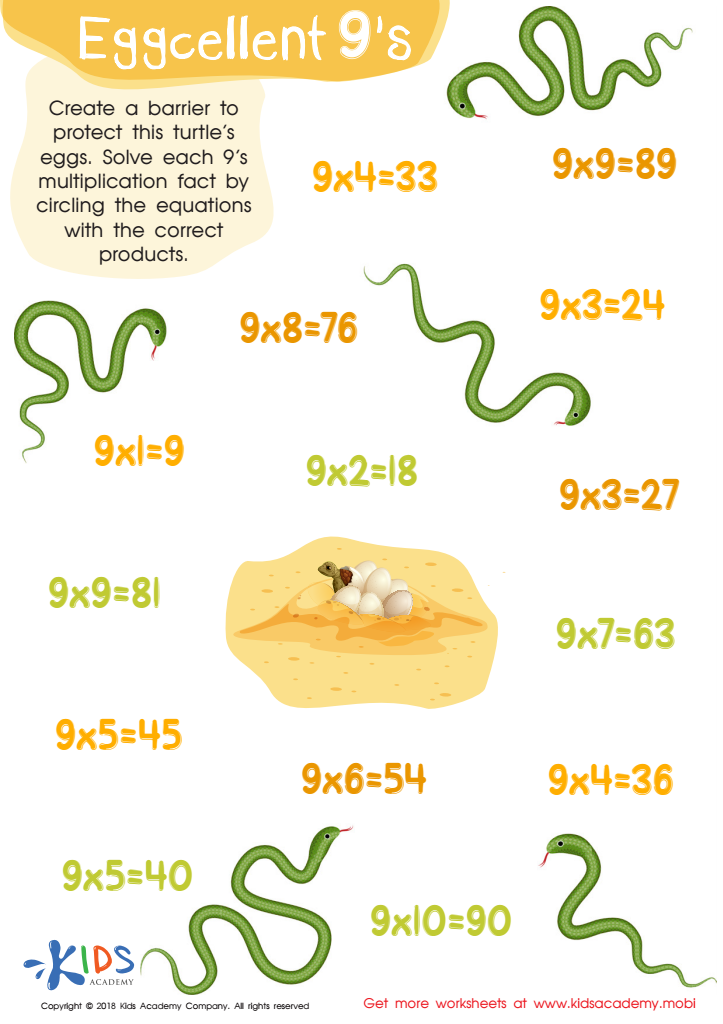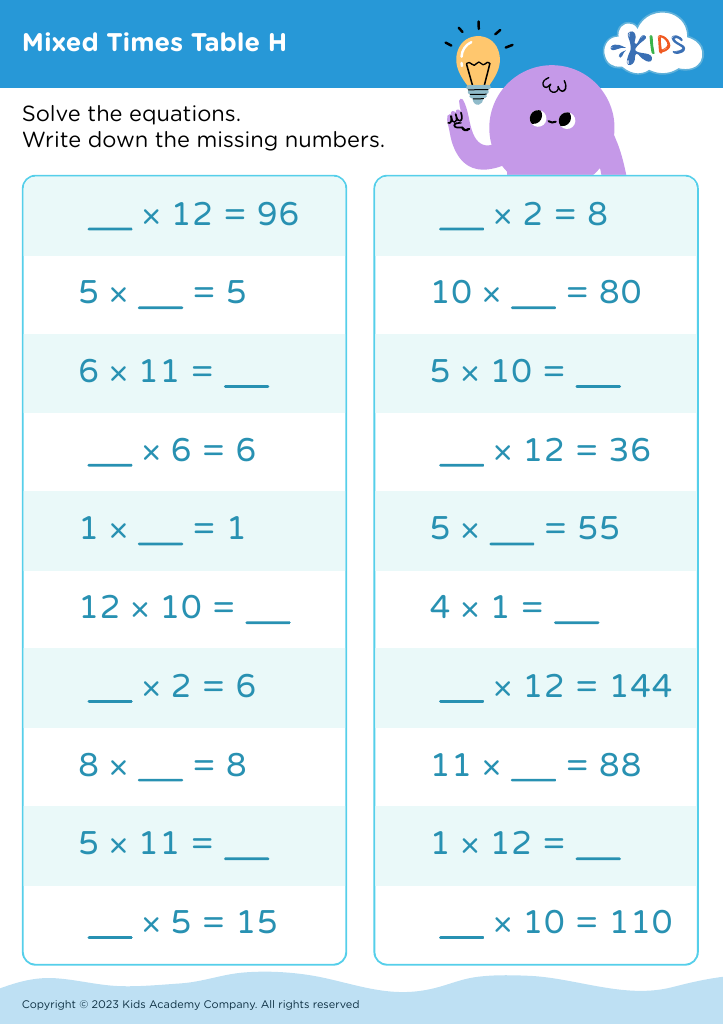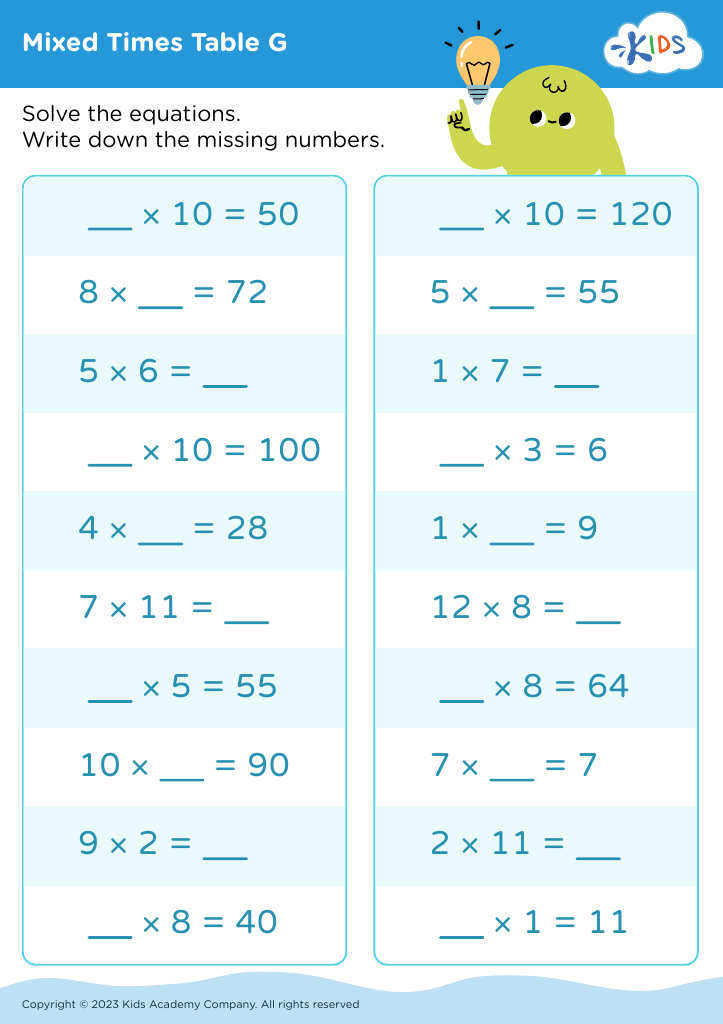Memorization skills Extra Challenge Math Worksheets for Ages 3-9
3 filtered results
-
From - To
Our Memorization Skills Extra Challenge Math Worksheets for ages 3-9 are designed to sharpen young minds through engaging and age-appropriate exercises. Specifically crafted to enhance cognitive development, these worksheets use fun puzzles, number sequences, and memory games to boost memorization skills. With colorful, exciting illustrations and progressively challenging tasks, children not only refine their math abilities but also improve their focus and memory retention. Ideal for early learners, these printable worksheets provide a unique, effective method to make learning math both enjoyable and rewarding. Join us in helping your child achieve academic success while having fun every step of the way!


Eggcellent 9’s Worksheet
Parents and teachers should prioritize memorization skills and extra challenge math for children aged 3-9 because these formative years are critical for building foundational cognitive abilities. Memorization, often associated with rote learning, sharpens the brain’s ability to store and retrieve information, an essential skill for more complex problem-solving down the line. By engaging in extra challenge math, children not only develop a comfort with numbers but also enhance their logical reasoning, analytical thinking, and creativity.
Early exposure to mathematical concepts fosters a positive attitude toward math, dispelling the anxiety that often surrounds the subject in later years. Moreover, these activities stimulate curiosity and resilience, as children learn that persistence is rewarded with understanding. This kind of cognitive development extends beyond math, enhancing overall academic performance and lifelong learning skills.
Parents and teachers serve an essential role in creating a stimulating, supportive environment that recognizes and celebrates a child's successes while providing the necessary resources to overcome challenges. This foundational focus helps set children on a path to academic confidence and competency, ensuring they are well-equipped to tackle more demanding subjects and real-world problems in the future.
 Assign to My Students
Assign to My Students


















